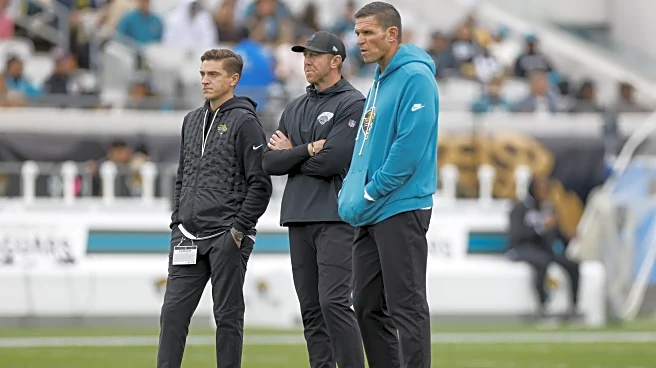What's Happening?
Sean Carter, a college student, experienced a life-altering car crash that resulted in a traumatic brain injury. His mother, Jenny Carter, took on the role of his full-time caregiver. Over the course of ten years, Sean, along with his mother and twin
brother Todd, participated in three recordings with StoryCorps, reflecting on their journey of acceptance and adaptation to their new reality. These recordings capture their emotional and psychological journey as they navigate the challenges and uncertainties brought about by Sean's injury.
Why It's Important?
The story of Sean Carter and his family underscores the profound impact of traumatic brain injuries on individuals and their families. It highlights the emotional and physical demands placed on caregivers, often family members, who must adapt to new roles and responsibilities. This narrative brings attention to the broader societal need for support systems and resources for families affected by such injuries. It also emphasizes the importance of storytelling and sharing personal experiences as a means of healing and fostering understanding within communities.
What's Next?
The StoryCorps recordings serve as a platform for Sean and his family to share their experiences, potentially inspiring others facing similar challenges. As they continue to adapt to their circumstances, their story may encourage discussions on improving support networks for individuals with traumatic brain injuries and their caregivers. The ongoing dialogue may lead to increased advocacy for policy changes and resource allocation to better assist affected families.
Beyond the Headlines
Sean Carter's story highlights the ethical and emotional dimensions of caregiving, particularly the sacrifices and resilience required from family members. It raises questions about the societal value placed on caregiving roles and the need for greater recognition and support for caregivers. Additionally, it prompts reflection on the long-term psychological effects of traumatic injuries and the importance of mental health resources in recovery processes.















